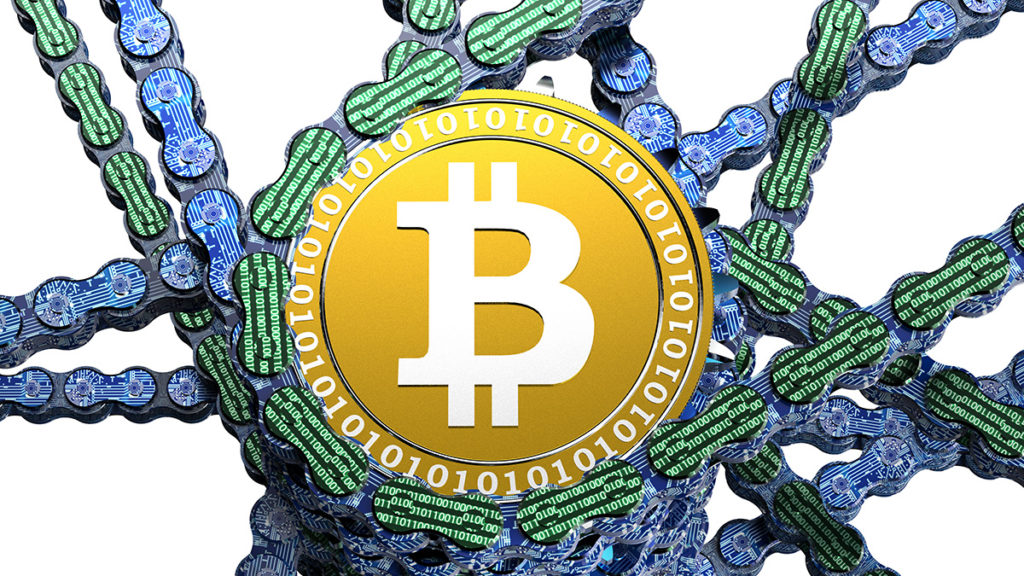Arguably, the most interesting feature of the Bitcoin system is the way in which Bitcoin payments are processed. To make it clear why payments must be processed at all and how Bitcoin processes payments differently, I’ll look at processing payments with cash and banks before turning to bitcoin.
Think about a cash transaction. Cash transactions have some desirable properties. If I were to pay you in cash, you’d be able to observe that I have a balance of dollars, and you would know when I’ve transferred the balance to you because you would see the dollars leave my hand and into yours. Moreover, transferring the cash to you prevents me from spending that balance again, because I no longer have the cash to hand over to some future seller. Physical cash limits users to spending balances they actually possess and prevents them from spending that balance more than once.
Electronic payments are somewhat different because, without an appropriate protocol, digital balances can be duplicated. I can send you a file without relinquishing my possession of the file. You have the file. I have the file. We both have the file. There’s no way to ensure that I’m in exclusive possession of a particular balance of digital money. So, with electronic payments, we must find some protocol to prevent double spending.
Without an appropriate protocol, digital balances can be duplicated.”
Prior to Bitcoin the most common way to prevent double spending involved a centralized clearinghouse. Consider what happens when you swipe your Bank of America debit card. If you’re paying someone who also has a Bank of America account, the bank debits your account and credits theirs. The bank clears the account centrally, certifying that you had the balance, have transferred the balance, and no longer have access to the balance of funds transferred.
If, instead, you’re paying someone who has an account a Chase, the clearing takes place at a higher level. The Federal Reserve Wire Network (FedWire) or the Clearing House Interbank Payment System (CHIPS), debits Bank of America and credits Chase. Again, the payment is cleared centrally. A single entity certifies that you had the balance, have transferred the balance, and now no longer have access to the balance of funds transferred.
Bitcoin is very different in this respect. Rather than rely on a centralized clearinghouse, Bitcoin payments are processed over a distributed system. We discussed a blockchain in an earlier post and noted that when you want to make a transaction, you effectively announce to the system that you’d like to move a balance of Bitcoin from one entry on the public ledger to another. These transactions are grouped into a block and members on the system then compete to be the first person to process the block of transactions. That is, they compete to demonstrate the block of transactions is consistent with the existing blockchain. Once a block is processed, the transactions are confirmed and the blockchain is updated.Rather than rely on a centralized clearinghouse, Bitcoin payments are processed over a distributed system.”]
Processing a block of transactions requires a solution to a complicated cryptography problem. Since the problem is sufficiently difficult, everyone trying to solve the problem essentially has a random chance of being first, equal to his or her share of total computing power. That’s important because some black hat user could make and confirm fraudulent transactions if she controlled a majority of the computing power. In fact, no one has control over a majority of the computing power on the Bitcoin system, so the system provides a sufficient check on double spending.
Processing transactions is costly. Solving the cryptography problem requires sophisticated computing hardware known as a mining rig and energy to run it. Why would someone incur these cost of processing transactions for the Bitcoin community?The Bitcoin protocol includes an incentive to process transactions.”]
The Bitcoin protocol includes an incentive to process transactions. The first person to confirm a batch of transactions is rewarded a prize of new Bitcoin and all of the transaction fees users offer up when making their transaction requests. The Bitcoin prize awarded for processing of a block of transactions is halved roughly every four years, so many suspect that transaction fees will become more important as the prize approaches zero Bitcoin.
Hopefully now you have a better sense of (1) why transactions must be processed and (2) how Bitcoin, a distributed system, processes transactions differently from decentralized physical cash and centralized clearinghouse systems.
Want to learn more about Bitcoin? Click here for an article on the basics of Bitcoin and here for a piece on cryptocurrency.



